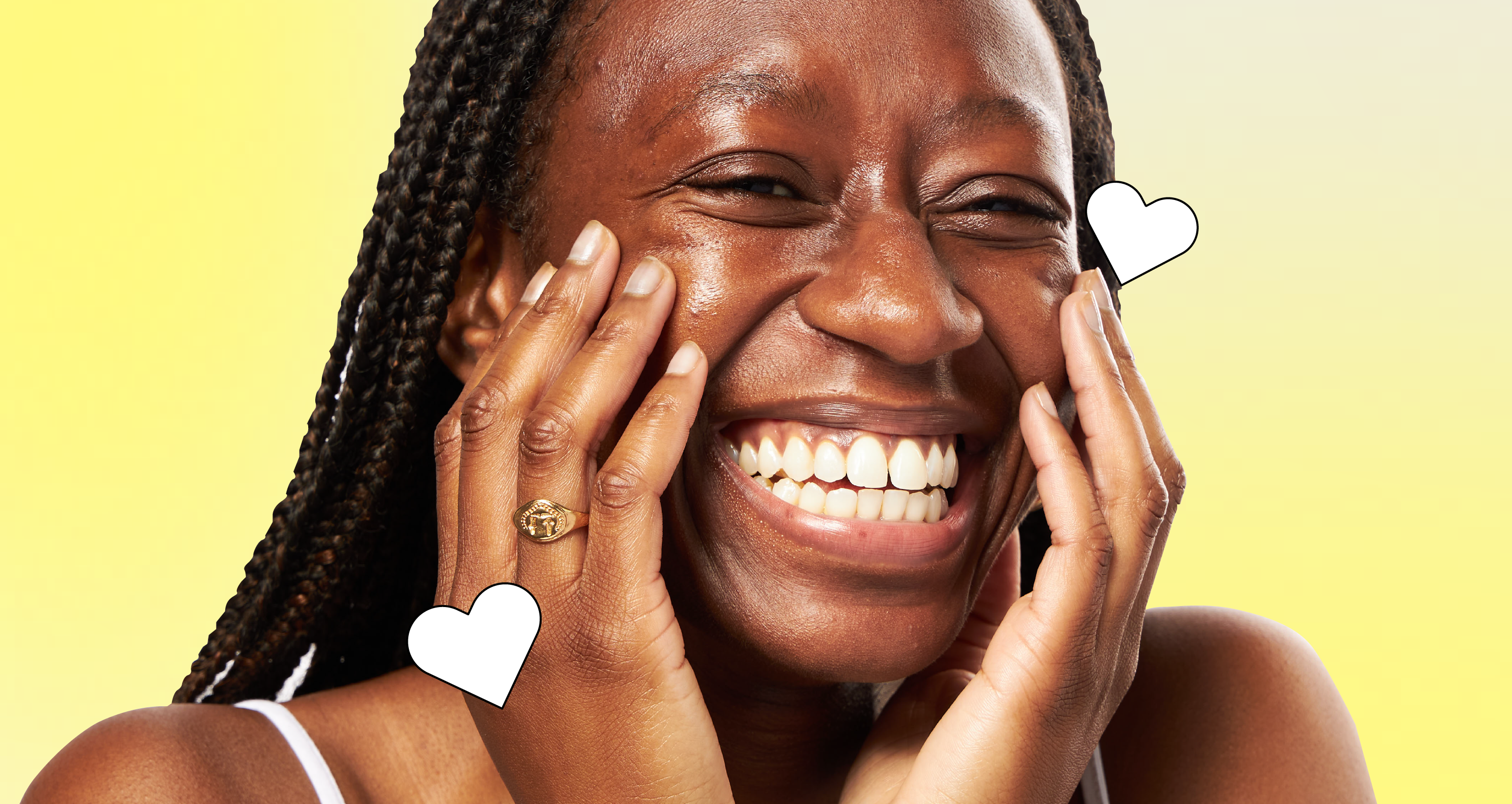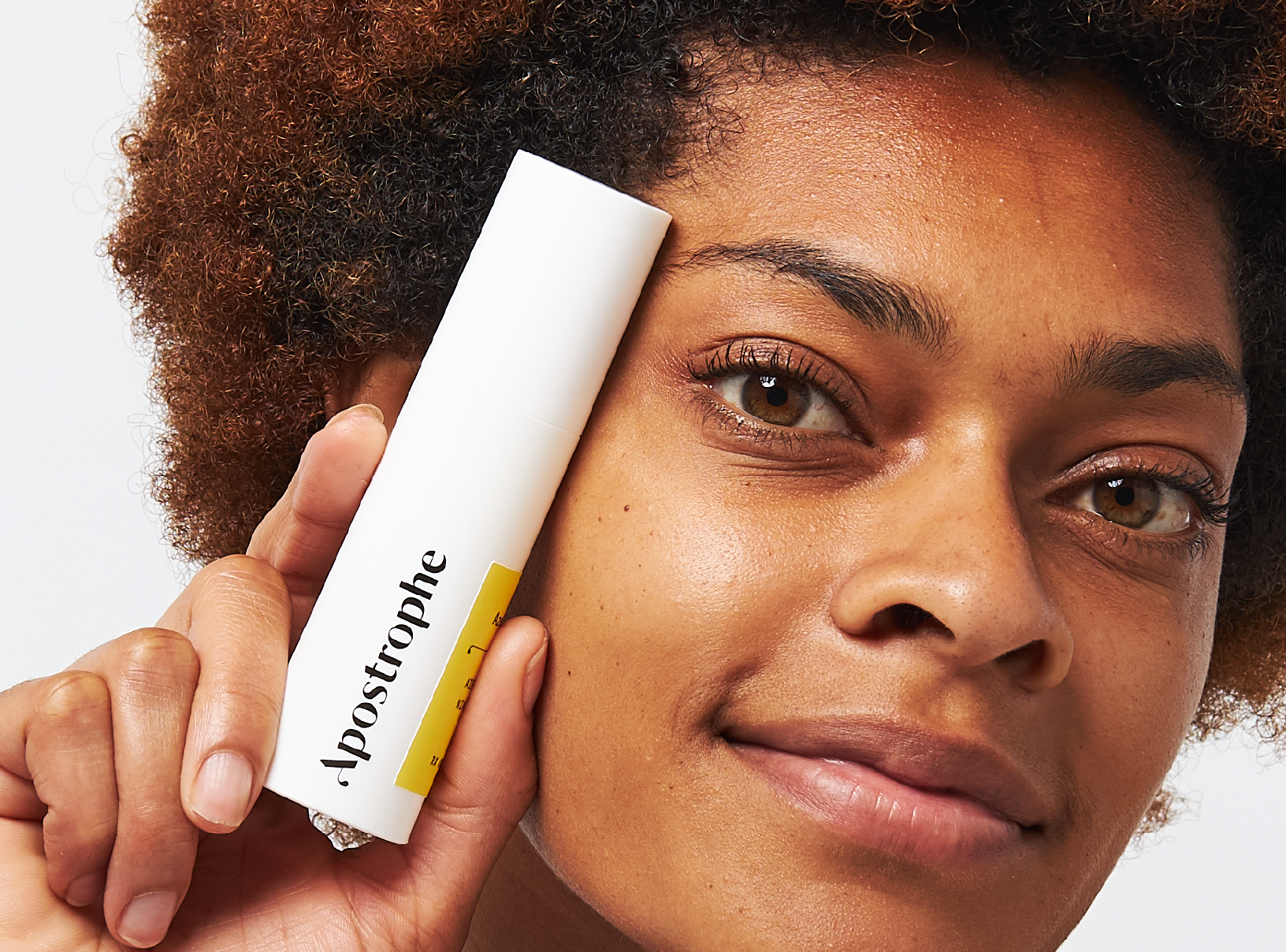Education
The Best Anti-Aging Skincare


SHARE
Education
The Best Anti-Aging Skincare
Medically reviewed by Kristin Hall, FNP
Written by Apostrophe Team
Last updated 4/5/2024
If there’s one thing getting older will teach you, it’s that there is no shortage of things to keep your mind occupied — work, bills, that mysterious sound in your lower back when you get up too quickly.
There’s always something. Which is why in the grand scheme of things, taking proper care of your skin may appear to be a lesser worry. However, with wrinkles and fine lines inching closer with each birthday, you can’t start too early — or worry too much — about the best anti-aging skincare practices.
A hundred and one night creams, eye creams, anti-aging neck creams, etc, promise to leave your skin looking, and feeling younger — but how do you know what choices to make, and what is likely to work best for your skin?
We’ll be examining the best anti-aging skincare ingredients to guide you when making your product decisions. But first, we’ll be checking the kind of care your skin needs as it advances in age.
What Should You Look Out for in Anti-Aging Skincare Products?
As you get older, there are a few hard truths you will come to learn about your skin: it will probably get thinner. Your face might start to sag. You could develop age spots, then dryness might set in and wrinkles will teach you a thing or two about territory.
To prevent or reduce your skin from showing these visible signs of aging, you need ingredients that can help your skin retain moisture. This can help in preventing or help reduce the appearance of wrinkles. With free radicals being a major cause of skin aging, skincare products that are high in antioxidants will help in combating oxidative damage to the skin.
You will also be requiring ingredients that can help to maintain the structure of the skin, as this may be affected with age. Likewise, ingredients that can help to improve any dullness which is typical of aged skin will be a big plus for your skin's appearance.
We’ve put together an ingredient list to help in making your choices easier.
8 of the Best Anti-Aging Skincare Ingredients
Tretinoin
Let's tell you a little something about the retinoid tretinoin. It was one of the first retinoids discovered, and while it was originally used to treat acne, its superpowers just may lie in getting you to “ooh” and “aah” at how much younger you look with reduced wrinkles and fine lines.
Tretinoin is perhaps the most potent retinoid for anti-aging.

PRESCRIPTION TRETINOIN
Target acne, dark spots, and signs of aging with this science-backed ingredient.
Studies, like this small study on 20 people, have shown tretinoin is effective at making significant improvements in wrinkling around the eyes, fine lines around the mouth, as well as skin discoloration.
To reduce the appearance of age on your skin, this retinoid takes going skin-deep very seriously.
It stimulates the production of new blood cells in your skin and helps with the deposit of new collagen.
It is also useful for improving elasticity in the skin and hydration, which are very important provisions for aged skin. It may also help to improve hyperpigmentation.
Hyaluronic Acid
Yes, it may sound a little odd to put acid on your skin — but like other acids before it: glycolic, azelaic, etc. — hyaluronic acid is safe for your skin, and may be effective at reducing the look of visible signs of aging.
If you’re a little doubtful, however, you should know that right now, you have some hyaluronic acid in you. This acid is produced naturally in the body and helps to keep your skin hydrated by binding and retaining water molecules.
However, as you get older, the amount of hyaluronic acid and moisture in your skin decreases.
Many moisturizers contain hyaluronic acid, so if you're looking to incorporate it into your skincare routine, look for it in the ingredient list!
Hyaluronic acid can help to reduce the depths of wrinkles and hydrate the skin. It can also improve skin firmness and elasticity, which is typically lacking in aged skin.
Coffee
Yes, same one.
While your morning coffee helps to get your day started, its active ingredient — caffeine, could be working behind the steam to reduce signs of aging in your skin.
Caffeine is a potent antioxidant that can slow down the photoaging of the skin. It does this by providing protection against the sun’s UV rays (but it's not a replacement for sunscreen!). UV rays are your skin’s number one foe, as they make up to 80 percent of the visible signs of aging. Coffee is also the largest source of polyphenols, important antioxidants for daily life.
Vitamin C
There's a reason creams, lotions, and serums fall over themselves to include vitamin C in their formulations. This ingredient could hold some real potential for the skin, particularly when it comes to reducing the signs of aging.
Vitamin C has antioxidant properties. That means it can protect your skin from UV rays which can fast-track its aging and the appearance of wrinkles.
This vitamin can also help to regenerate other antioxidants in the body.
Vitamin C also helps in the production of collagen, an important ingredient for skin strength and firmness which we’ll be checking out next.
Collagen
If at any point you've enjoyed smooth, firm, and strong skin, you just may owe collagen a belated “thank you.”
Collagen is produced by the body. It is responsible for the structure of the skin by retaining water and providing support for skin firmness.
As you age, however, your body’s supply of this protein reduces, which is usually around the time that your skin begins to lose its usual strength and elasticity, leaving you open to wrinkles and increasingly thin and dry skin.
Thankfully, ingredients like tretinoin can help increase collagen production to support skin firmness and elasticity.
We'd recommend being weary of topical application of collagen as there are minimal studies on its efficacy. Opting for clinically-proven ingredients for aging is your best bet for increasing your skin's collagen production.
Ceramides
In case you missed it: moisture plays a big part in your skin health and appearance, which is why ceramides should take up a big part of your skincare routine.
Ceramides are lipids produced by the body. They are important for barrier function and help to lock moisture into your skin.
Ceramides are important for skin health, you'll notice that especially if you ever experience a deficiency of this lipid.
Without the hydration provided by ceramide, skin may get dry, which typically causes wrinkles to appear. You may also notice your skin starts to look dull.
Thankfully, ceramides are currently all the rage in skincare, and are available in many products targeted toward preventing and reducing the signs of aging.
Co-enzyme Q10
Coenzyme Q10 is a potent antioxidant produced naturally in the skin. In addition to protecting against free radicals, this enzyme is also necessary for energy production in cells.
Now, remember how we said UV rays were especially bad for your skin's health? Well, that hasn't changed. Oxidative stress courtesy of the sun's rays, or other measures like smoking and pollution can affect the skin, and increase the appearance of age.
This is why antioxidants like CoQ10 are necessary to neutralize the free radicals brought on by oxidative stress, which can cause wrinkles and skin discoloration.
Even better, CoQ10 is able to promote energy production in skin cells, this can help in fighting the signs of aging on a cellular level.
Now the bad news is, even though COQ10 is produced naturally in the body, its levels decrease with age. But there’s good news: your skin can still enjoy the benefits of this enzyme by applying it topically.
Niacinamide
Here's a repeated list of things that can happen to your skin as you get older: you experience fine lines and wrinkles, you may develop age spots, your skin could get blotchy and you lose out on elasticity.
Here's a list of benefits topical niacinamide has been proven to provide: a reduction in fine lines and wrinkles, and reduced hyperpigmented spots.
This B-vitamin is a great addition to any anti-aging skincare routine.
In Conclusion
We spend a lot of time in our skin, so it's understandable to get more than a little attached to it looking its youngest and healthiest.
Achieving supple skin is a common wish for many, and a promise anti-aging products have sworn to deliver.
To make sure you're reversing the clock just right for your skin, make sure to keep an eye out for the listed ingredients, and to observe safe skin care activities.
Shop this post

Tretinoin
Like what you just read? Sign up for our email list to get the scoop on skincare science delivered straight to your inbox.

Deep Dives
A dermatologist shares his thoughts on the recent studies about benzoyl peroxide and benzene.
Read More
Education
What is milia?
What is milia? Today, we’re jumping into one type of bump that you may have heard about most commonly in infants — milia.
Read More
Education
Best moisturizer for acne-prone skin
If you have combination acne-prone skin, figuring out which moisturizer is best for your skin might be tough. In this guide, we break down the best moisturizer for combination, acne-prone skin.
Read More